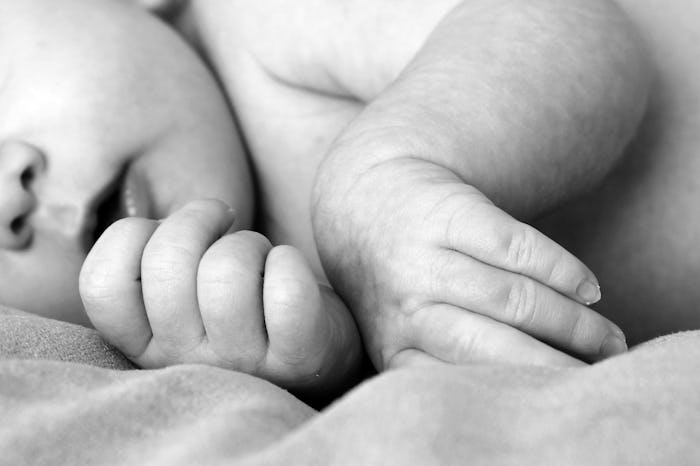Until now, your sweet little bundle of joy has been sleeping all night and taking long restful naps during the day, but at 4 months, your baby seems to be turning into a cranky fussy sleeper. Well, you're not alone. What your baby is experiencing is called sleep regression, which most babies go through when they turn 4 months old. Sleep regression is a completely natural and normal part of your baby's development, but tired and frustrated parents must want to know, how long does the 4 month sleep regression last?
At 4 months, your baby's sleep is becoming more adult-like. According to Wee Bee Dreaming, they are no longer able to fall into REM sleep instantly and instead fall asleep in stages — light sleep, then deep sleep. They're also becoming more aware of their surroundings, which makes it difficult for them to fall and stay asleep. This makes it harder for you to put your baby to sleep, and now even the slightest noise may wake them. These changes can upset babies' sleep schedules and be frustrating and exhausting for babies and parents alike.
The good news is that the 4 month sleep regression won't last forever. Sleep experts like Kim West, also known as The Sleep Lady, noted that sleep regressions should last between two to six weeks. This is the time it takes for babies to adjust to their changing sleep patterns and find ways to self-soothe in order to fall asleep. But if you're still exhausted, there are things you can do to help manage your baby's sleep regression and accommodate their changing sleep habits.
Sleep Baby Love noted that to manage their babies' sleep development, parents can focus on creating stable and healthy sleep habits. They can start by shifting babies to an earlier bedtime and by establishing an exclusive sleeping environment for both nighttime sleep and daytime naps that are quiet, dark, and allow minimal distractions.
According to Sleep Tight Consultants, the 4 month sleep regression is said to be the hardest of the many sleep regressions your baby will go through. With preparation, love, and patience, you and your baby can get through this temporary phase and return to great restful sleep soon.
